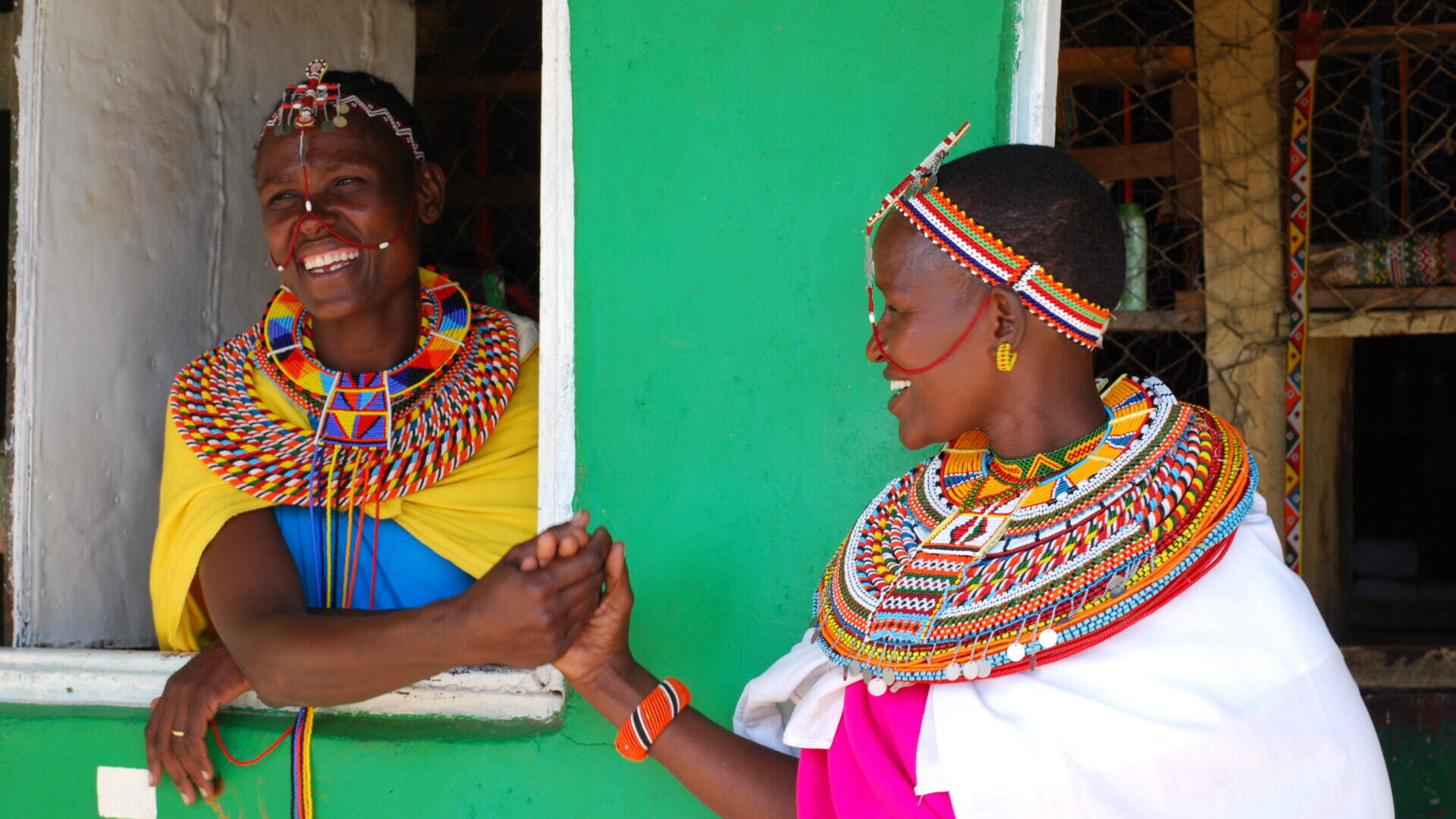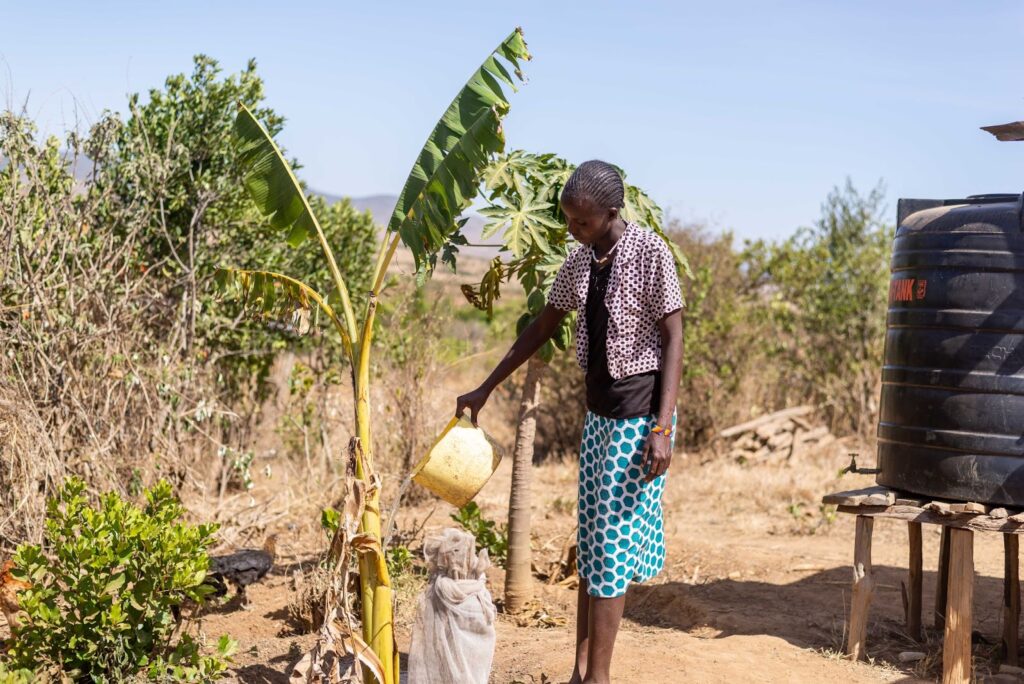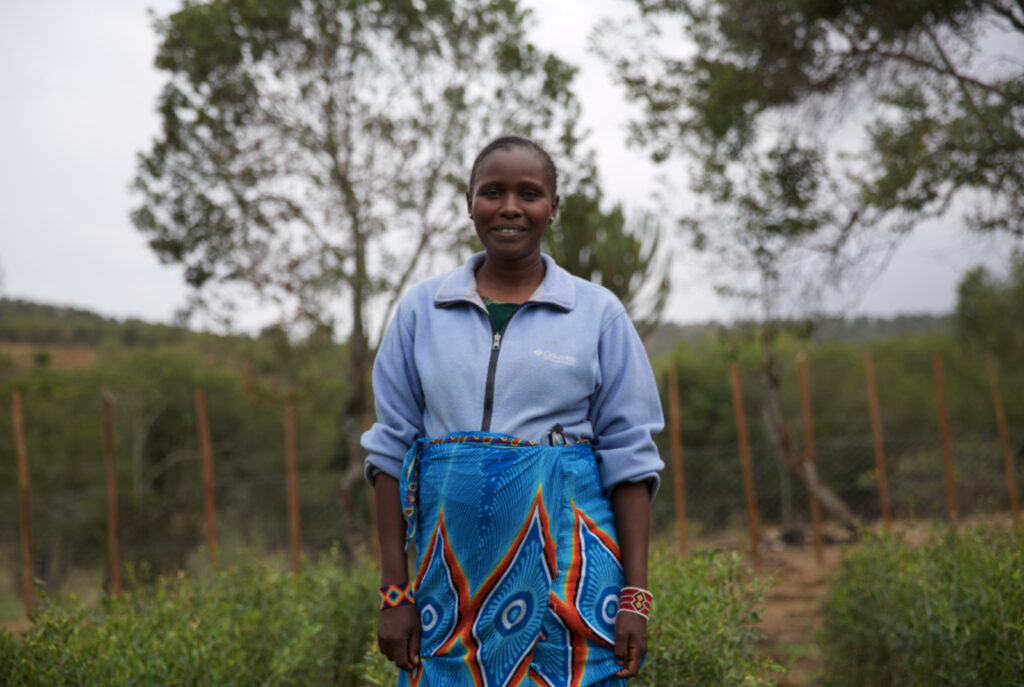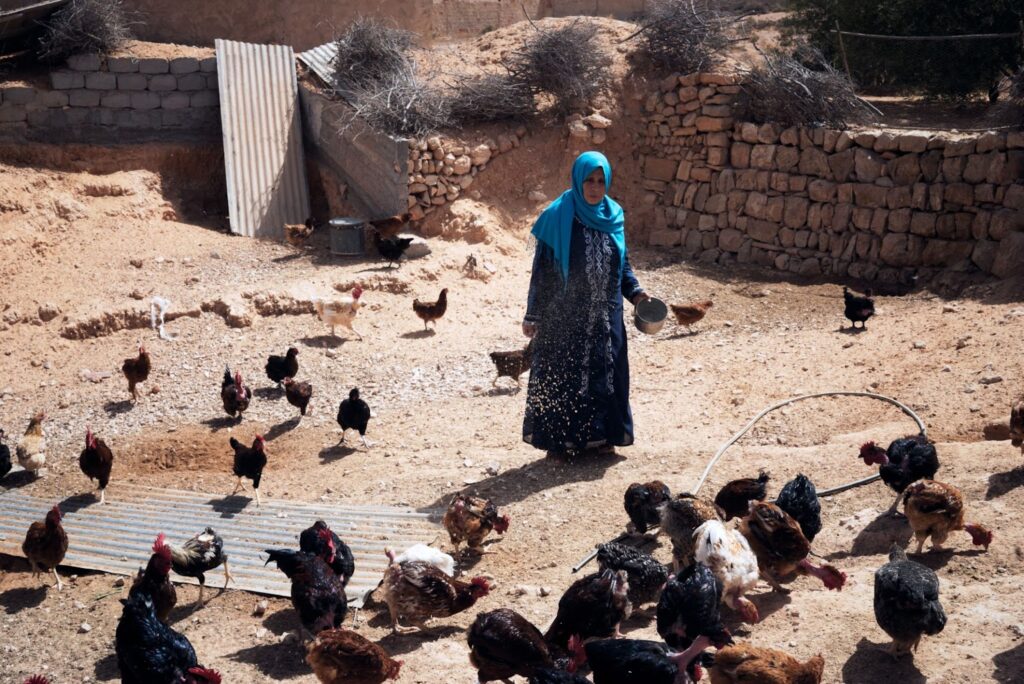
Julie Kedroske | Head of Technical Assistance, BRAC Ultra-Poor Graduation Initiative and Cherise Forbes | Director of Communications, The BOMA Project
The climate crisis most severely impacts women in extreme poverty due to a combination of factors including social, economic, and cultural, something experts have termed a “threat multiplier.”
Women are more likely to experience extreme poverty than men, which often means they lack access to the resources and knowledge that would enable them to build resilience to shocks such as those caused by the climate crisis. Recent projections estimate up to 216 million people will be displaced by climate change by 2050. Over half of these will be women and girls.

At The BOMA Project (BOMA) and BRAC Ultra-Poor Graduation Initiative (UPGI), we recognize the intrinsic linkages between issues of gender equality, social and economic inclusion, and worsening climate shocks. We also see women as critical agents of change in both climate resilience and climate mitigation.
BOMA’s Rural Entrepreneur Access Project (REAP) is designed to respond to the unique challenges of climate-vulnerable contexts. Developed in the arid and semi-arid lands (ASALs) of northern Kenya, REAP involves 16 to 24 months of sequenced interventions which incorporate environmental considerations into every step.
In 2019, BOMA began a climate mitigation-focused adaptation known as Green REAP in the Kirisia Forest region of Samburu County, in northern Kenya. The Kirisia ecosystem supports a population of about 50,000 people, predominantly Samburu nomadic pastoralists who access the forest for timber and honey and for livestock pasture during the dry season. Households depend heavily on the forest for its resources and for its spiritual and aesthetic importance.
Despite Kirisia’s centrality to the community, unrelenting drought has caused many people to lose their livestock and turn to forest extractives as a way to survive. Since 1973, the forest has lost a quarter of its tree cover.
Green REAP is designed to create a pathway out of poverty while also protecting the forest. Between 2019 and 2021, 60 percent of participants shifted away from extractive livelihoods and into sustainable green enterprises including tree nurseries as well as aloe and honey production. Sixty percent of participants have joined their local community conservation group and are taking the lead in forest management and restoration. Meanwhile, deforestation has reduced dramatically and more than 30,000 tree seedlings have been planted.
Before Pamela Lonolngenje enrolled in BOMA’s Green REAP program, she was reliant on the destructive and exhausting practice of harvesting charcoal from Kirisia. After enrolling in Green REAP, Pamela formed a business group with two other women from her community and launched a kiosk.
She also joined the local Naramat Community Forest Association (CFA). As a CFA member, Pamela gained access to a carefully selected sample of wood and other assorted forest products. Pamela and her group also received training in mass tree planting, wetland management, and other forest and conservation management activities.
“Protecting the forest doesn’t mean we have to give up on our livelihoods,” Pamela said. “We can actually make more income by taking care of the land that is our home.”

In Kairouan, Tunisia, the Ministry for Agriculture, Water Resources and Fisheries, the Ministry of Social Affairs, the International Fund for Agricultural Development (IFAD), and the Adaptation Fund have partnered with BRAC UPGI to support the design and implementation of a Graduation pilot program within the larger Economic, Social and Solidarity Project (IESS- Kairouan) livelihoods and natural resource management program. This project will place a particular emphasis on strengthening climate-resilient livelihoods for women and youth.
Regions in MENA are particularly vulnerable to climate shocks such as increased frequency and severity of extreme weather, changes in temperature and precipitation, and increased soil erosion. Compounded with unsustainable management of natural resources, these shocks contribute to long-term loss of livelihood and malnutrition, leading to significant human capital loss.

BRAC is working with the government and IFAD to integrate climate resilience throughout the design and implementation of the program by prioritizing the most climate vulnerable households and aligning Graduation program components with climate adaptations. This includes identifying climate-resilient livelihoods, risk management strategies, and aligning nutrition-boosting kitchen gardens with the government’s water and transportation infrastructure plans.
One promising livelihood option emerging from the ongoing design phase of this program is prickly pear cultivation. Prickly pear cacti provide a wealth of value chain potential and climate resilience impacts: almost all parts of the cacti can be used for food, livestock fodder, or marketable products, and by requiring up to 80 percent less water than traditional crops, they’re naturally suited to drought-prone regions.
Beyond its household impacts, prickly pear cultivation can also reduce climate changes’ impact on the environment by reducing soil erosion and helping maintain the water table. When used as livestock fodder, it also helps reduce the strain of grazing on the land, and it can encourage biodiversity by acting as a shelter for birds and mammals.
Investing in holistic programs which adapt to local needs and constraints to build the resilience of women in extreme poverty is necessary for long-term climate adaptation and mitigation. As climate shocks increase in frequency and severity, we need long-term solutions that empower local residents to build their own resilience so they are better positioned to withstand future climate-related shocks.
Working with communities and local leaders to sustainably manage natural resources and to identify context-appropriate solutions is critical to achieving climate resilience in the most vulnerable communities. Political will at the national level is also necessary.
“There is a need to make sure ministries are combined in their approaches – we can no longer work in a parallel fashion as it is unfortunately too often the case,” said Philippe Remy, Country Director for the Near East, North Africa, Europe and Central Asia Division at IFAD. “There are not many cases in the world where climate change policies are implemented in a comprehensive way. We can support this approach at project level, making different ministerial representatives work together and look for solutions to make it sustainable.”
International institutions like IFAD have taken steps to build more climate resilience through their longstanding commitment to localized climate adaptation, as well as increased financial commitments which we’ve recently seen come from the Asian Development Bank and World Bank. It is these kinds of necessary steps we applaud and encourage international organizations to take.
Preventing the worst impacts of climate change on the most vulnerable populations is possible. By investing in the building of climate resilience for the most marginalized and vulnerable populations today, countries can reduce extreme poverty and empower women to build sustainable, resilient futures. The climate crisis is man-made. With investments in climate-responsive programs, it can be unmade.
